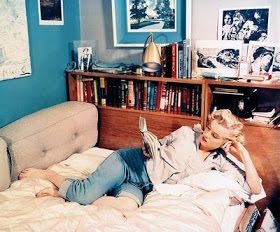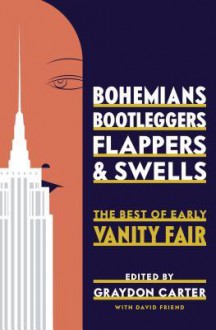 Vanity Fair
Vanity Fair is a big surprise for me. I was expecting a story about the trial and tribulations of a couple of plucky lady friends what I discovered was a witty, satirical novel that made me laugh several times, engaged my attention always and even moving at times.
On the surface
Vanity Fair is a story of the two main characters Becky Sharp and Amelia Sedley, two childhood friends from the opposite ends of the moral and intellectual spectrum. Becky is ambitious, conniving and smart, Amelia is humble, kind, simple, and rather dim. The novel concurrently charts Becky’s rise from her humble station in life to the rank of the fashionable high society, while Amelia meets with several misfortunes and becomes penniless. It is quite a lengthy novel of more than 800 pages with a large cast of characters who revolve around the lives of the two protagonists.
The most interesting feature of
Vanity Fair is how meta it is. Thackeray often breaks the fourth wall to address the reader directly with sly and humorous asides, making light of the novelist’s omnipotence. This is a difficult book to review because it is so densely plotted with something happening on every page.
The characters are very well developed, particularly Becky who is basically a femme fatale but still manages to show the odd flashes of conscience. Amelia is too virtuous for her own good yet unintentionally takes advantage of a man who has an unrequited love for her. It is an interesting trope of a lot of fiction that the nicest, kindest man is immediately friendzoned by the love of his life. This is very much the case for William Dobbin the man who longs for his (dead) best friend’s girl Amilia like a Norwegian Blue parrot pining for the fjord*
My only minor criticism of the book is that some of the characters are just a little too stupid to be realistic. Amelia is well aware of Dobbin’s love for her but feels unable to return his love because she feels that she would be betraying the memory of her dead husband. Although Amelia is naïve, dimwitted and does not care for him Dobbin – an intelligent fellow – cannot get over his obsession with her. Amelia’s brother Jos is even worse, he has seen with his own eyes that Becky is dishonest, mercenary and cannot be trusted but he still falls for her entrapment. His stupidity is surprising because he is described as talented and singlehandedly recues his father and his sister from extreme poverty.
Thackeray’s writing is wonderful, excessive usage of the word “prodigious” notwithstanding. I don’t think I have read anything this witty since [b: The Picture of Dorian Gray|5297|The Picture of Dorian Gray|Oscar Wilde|https://d.gr-assets.com/books/1424596966s/5297.jpg|1858012]. Like all long novels it is something to sink into and live with rather than just passively reading.
The book makes me reflect that being virtuous is not enough to be of much use to the world if the virtue is not supported by intelligence and wisdom. On the other hand being clever like Becky and achieving wealth and fame is a hollow accomplishment if you are left with no genuine friends and family and viewed with disdain everywhere you go.
One of my favorite Victorian novels, if you like reading the classics
Vanity Fair is a must.
______________________________________
Notes
For a change the free audiobook does not come from Librivox.org, they have their own edition but it is read by multiple readers several of them are very bad. The edition I listened to is
from Lit2Go, beautifully read by Amanda Elan.
My favorite quotes are not included on GR’s quotes page for this book so I’ll drop them here:
LOL:
“Though he was familiar with all languages, Mr. Kirsch was not acquainted with a single one, and spoke all with indifferent volubility and incorrectness.”Meta:
“If, a few pages back, the present writer claimed the privilege of peeping into Miss Amelia Sedley's bedroom, and understanding with the omniscience of the novelist all the gentle pains and passions which were tossing upon that innocent pillow, why should he not declare himself to be Rebecca's confidante too, master of her secrets, and seal-keeper of that young woman's conscience?”* Hi Cecily! ;)



 Log in with Facebook
Log in with Facebook 











